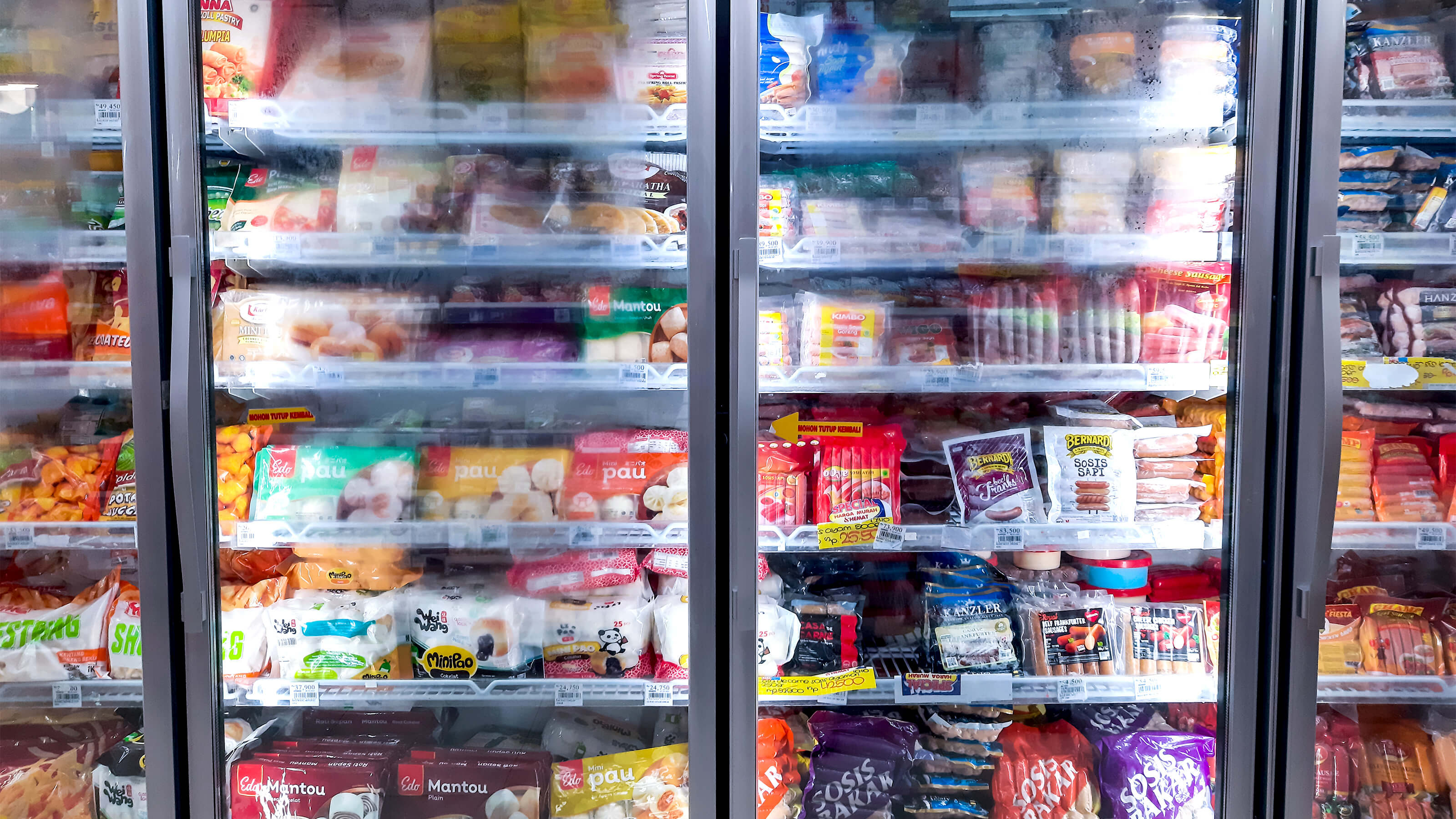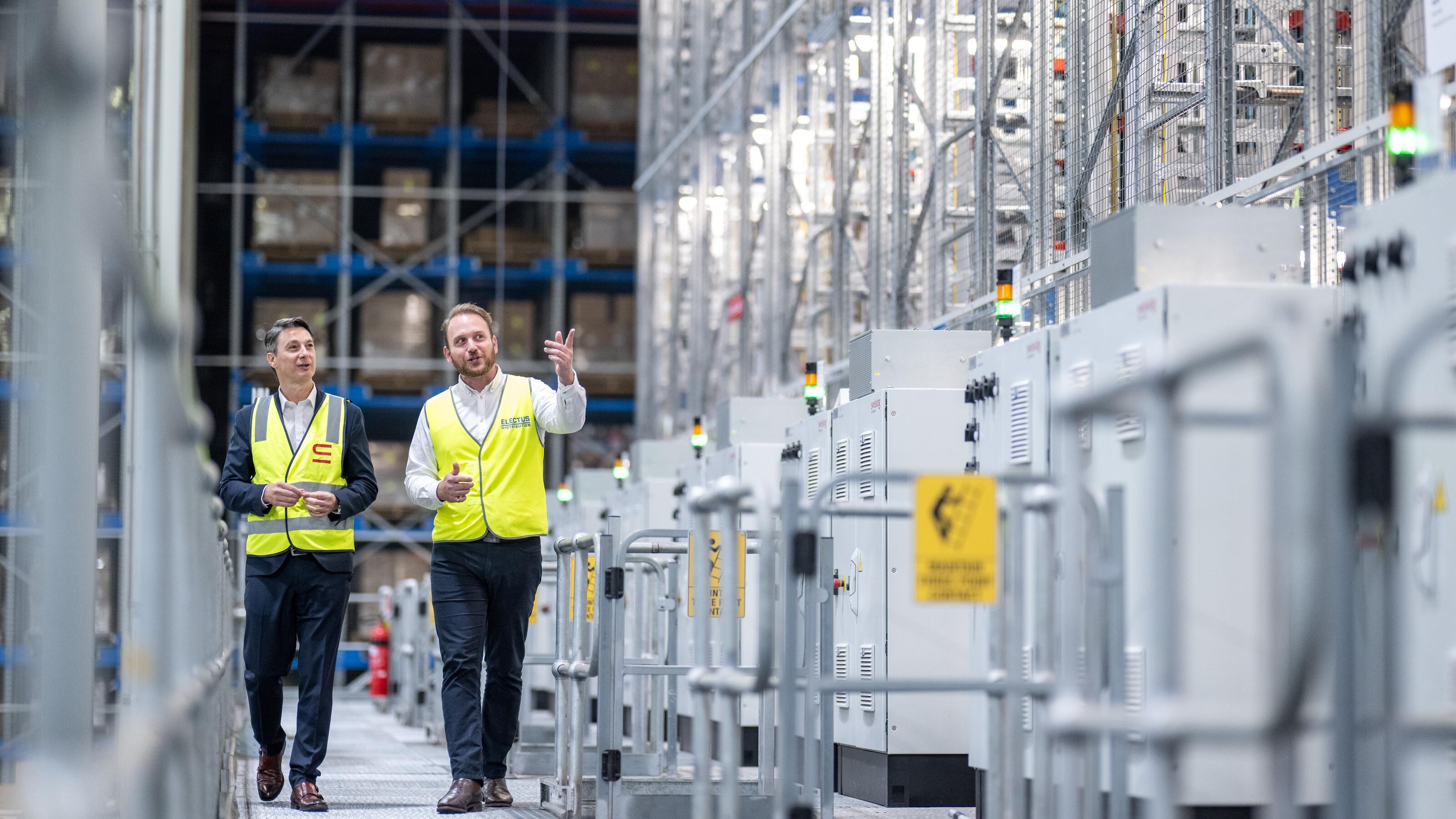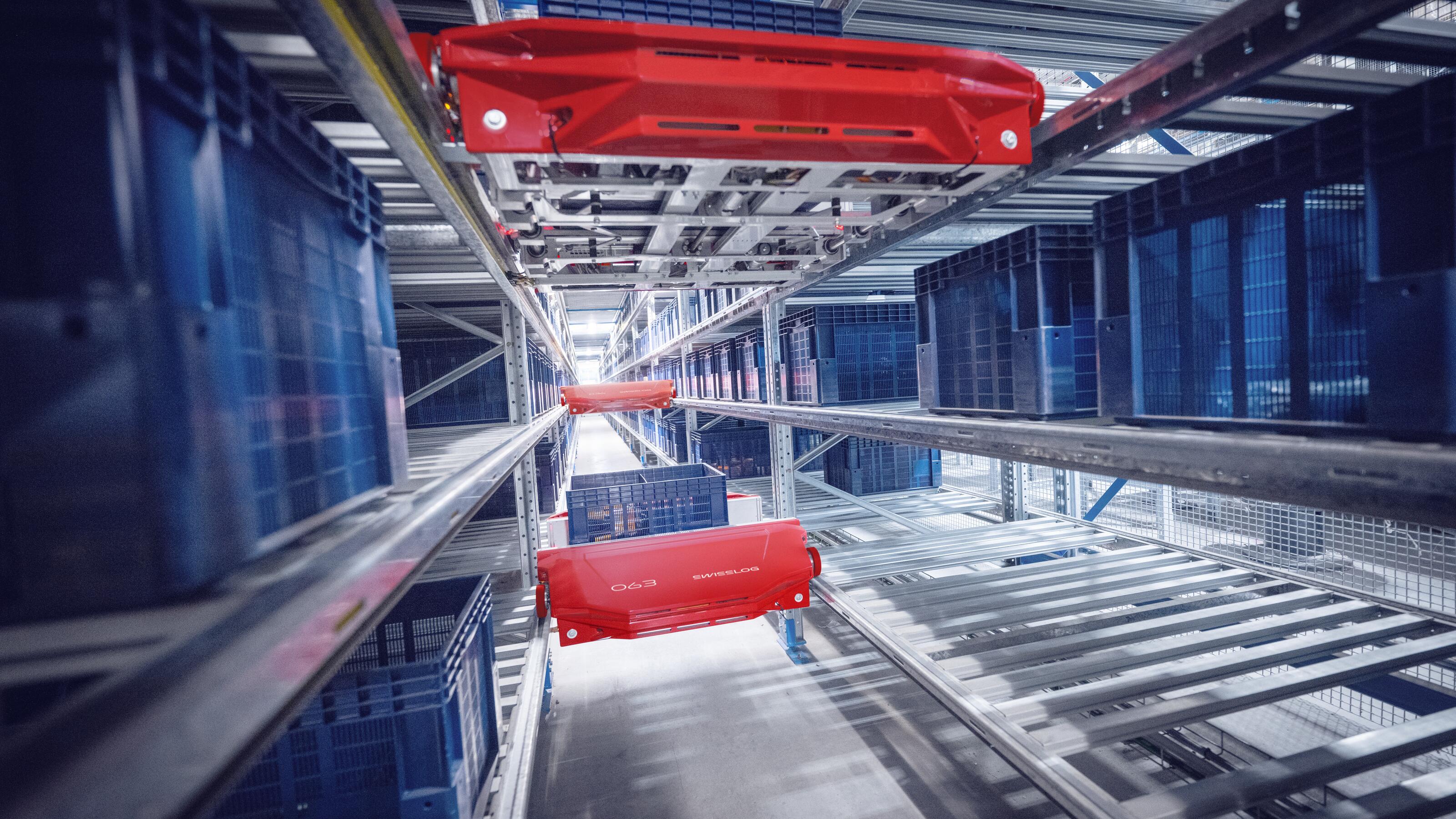Revolutionize store replenishment: The power of automated mixed case picking and palletizing

As the retail industry evolves, the need for efficient store replenishment systems becomes more critical. Prior to joining Swisslog, ACPaQ solution expert Jens Heitzmann gained career-defining experience working for a leading European retailer. In this post, he shares insights on how fully automated mixed case palletizing can improve store replenishment.
Did you know that poor store replenishment practices can significantly affect a company’s financial health and inventory risk?
Mixed case palletizing, which involves strategically stacking different products onto a single pallet or cage, is essential for grocery retailers. This method maximizes space and ensures stability during transportation, streamlining distribution, reducing handling time, and accelerating store replenishment.
Historically, this process has been manual, but automation has revolutionized it by addressing labor shortages and rising costs. By ensuring that products flow seamlessly from warehouse to stores, automation optimizes efficiency and keeps the supply chain running smoothly.
Challenges in retail store replenishment

The retail industry faces several hurdles with store replenishment today. One significant challenge is SKU proliferation. The number of stock-keeping units (SKUs) has increased considerably, with variations of similar products sourced from different regions. This diversification demands more sophisticated handling and storage solutions. Additionally, rising costs, particularly labor costs, coupled with a shortage of skilled labor, compel retailers to seek more efficient supply chain management methods.
Modern consumers frequently change their buying habits, making it difficult for retailers to predict and meet demand consistently. Retailers also need to fulfill orders in line with changing store formats and product ranges, necessitating accurate forecasting and efficient replenishment systems. Furthermore, the concept of store friendliness emphasizes the need for pallets to be easy to unload and products to be readily accessible, which, if not managed well, can increase costs at the store level.
5 benefits of automating store replenishment
- Reduced dependency on manual labor - Automation allows operations to run continuously across shifts, minimizing reliance on human labor.
- Efficient SKU management - Automated systems handle diverse SKUs without compromising performance, enhancing throughput.
- Consistent quality and speed - Mixed case palletizing ensures reliable quality and speed, meeting modern retailer's quick turnaround demands.
- Seamless integration - These systems integrate seamlessly with existing warehouse operations. Storage locations in the case buffer connect to every fully automated picking station, optimizing throughput and reducing lead times.
- Minimal picking failures - Fully automating palletizing can eliminate picking errors, ensuring products reach shelves promptly and are always available when needed. No safety stocks needed! A more streamlined and effective replenishment process is provided and thus, customer satisfaction is enhanced.
Future trends in grocery retail supply chain automation

Looking ahead, several trends are shaping the future of grocery retail supply chain automation. There is a growing need to simplify automation processes to ensure easier operation and maintenance. Reducing costs while maintaining high efficiency is crucial for profitability. Systems must also be flexible enough to adapt to unforeseen changes in consumer behavior and market demands. Achieving perfect store friendliness remains challenging, but ongoing efforts aim to balance pallet stability, transport optimization, and ease of unloading.
Mixed case palletizing delivering results for grocery retailers
Swisslog has integrated several technological advancements into its automated mixed case palletizing system, ACPaQ, providing several key benefits for grocery retailers. The system efficiently handles a vast number of SKUs, meeting the high demands of grocery retail operations. While offering configurable solutions to meet specific customer needs, we ensure that these solutions are standardized enough to maintain cost efficiency and scalability. Our forward-thinking approach ensures that the systems installed today will remain relevant and adaptable to future changes in the retail landscape.

We also emphasize collaboration with clients to tailor solutions to their specific needs. Instead of extensive customization, Swisslog offers proven configurable options that adapt to various packaging types, SKUs, and operational parameters, ensuring scalability and ease of maintenance.
Swisslog remains at the forefront of these developments by continuously refining its solutions, integrating feedback from experiences, and maintaining close collaborations with clients to ensure their systems meet evolving needs. In an ever-changing retail landscape, Swisslog’s ACPaQ solution provides grocery retailers with the tools they need to enhance efficiency, reduce costs, and meet customer demands.
To learn more about the automated mixed case palletizer ACPaQ, speak to a Swisslog expert today.













